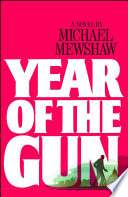« Return to all search results
Title Search Results
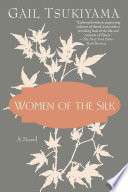
In Women of the Silk Gail Tsukiyama takes her readers back to rural China in 1926, where a group of women forge a sisterhood amidst the reeling machines that reverberate and clamor in a vast silk factory from dawn to dusk. Leading the first strike the village has ever seen, the young women use the strength of their ambition, dreams, and friendship to achieve the freedom they could never have hoped for on their own. Tsukiyama's graceful prose weaves the details of "the silk work" and Chinese village life into a story of courage and strength.
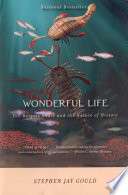
"[An] extraordinary book. . . . Mr. Gould is an exceptional combination of scientist and science writer. . . . He is thus exceptionally well placed to tell these stories, and he tells them with fervor and intelligence."—James Gleick, New York Times Book Review High in the Canadian Rockies is a small limestone quarry formed 530 million years ago called the Burgess Shale. It hold the remains of an ancient sea where dozens of strange creatures lived—a forgotten corner of evolution preserved in awesome detail. In this book Stephen Jay Gould explores what the Burgess Shale tells us about evolution and the nature of history.
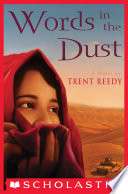
Zulaikha hopes. She hopes for peace, now that the Taliban have been driven from Afghanistan; a good relationship with her hard stepmother; and one day even to go to school, or to have her cleft palate fixed. Zulaikha knows all will be provided for her--"Inshallah," God willing. Then she meets Meena, who offers to teach her the Afghan poetry she taught her late mother. And the Americans come to her village, promising not just new opportunities and dangers, but surgery to fix her face. These changes could mean a whole new life for Zulaikha--but can she dare to hope they'll come true?
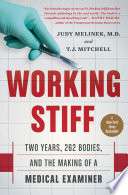
“Fun…and full of smart science. Fans of CSI—the real kind—will want to read it” (The Washington Post): A young forensic pathologist’s “rookie season” as a NYC medical examiner, and the hair-raising cases that shaped her as a physician and human being. Just two months before the September 11 terrorist attacks, Dr. Judy Melinek began her training as a New York City forensic pathologist. While her husband and their toddler held down the home front, Judy threw herself into the fascinating world of death investigation—performing autopsies, investigating death scenes, counseling grieving relatives. Working Stiff chronicles Judy’s two years of training, taking readers behind the police tape of some of the most harrowing deaths in the Big Apple, including a firsthand account of the events of September 11, the subsequent anthrax bio-terrorism attack, and the disastrous crash of American Airlines Flight 587. An unvarnished portrait of the daily life of medical examiners—complete with grisly anecdotes, chilling crime scenes, and a welcome dose of gallows humor—Working Stiff offers a glimpse into the daily life of one of America’s most arduous professions, and the unexpected challenges of shuttling between the domains of the living and the dead. The body never lies—and through the murders, accidents, and suicides that land on her table, Dr. Melinek lays bare the truth behind the glamorized depictions of autopsy work on television to reveal the secret story of the real morgue. “Haunting and illuminating...the stories from her average workdays…transfix the reader with their demonstration that medical science can diagnose and console long after the heartbeat stops” (The New York Times).
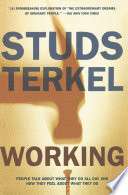
WITH A NEW FOREWORD BY ADAM COHEN OF THE NEW YORK TIMES Perhaps Studs Terkel's best-known book, Working is a compelling look at jobs and the people who do them. Consisting of over one hundred interviews with everyone from a gravedigger to a studio head, from a policeman to a piano tuner, this book provides an enduring portrait of people's feelings about their working lives. "A powerful, original, indescribable and incredible book... Only an interviewer of genius, exploiting the tape recorder as hardly anyone else has done, could possibly have brought it forth." —Lewis Mumford "A magnificent book... a work of art. To read it is to hear America talking." —Boston Globe "Splendid... Important... Rich and fascinating... The people we meet are not digits in a poll but real people with real names who share their ancedotes, adventures, and aspirations with us." —Business Week "The talk in Working is good talk--earthy, passionate, honest, sometimes tender, sometimes crisp, juicy as reality, seasoned with experience." —Washington Post "Nothing could tell our children's children who and how and what we were the way Studs Terkel will. Is it possible the great American novelist is Terkel?" —Murray Kempton
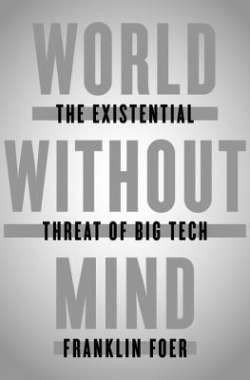
A New York Times Book Review Notable Book of 2017 Franklin Foer reveals the existential threat posed by big tech, and in his brilliant polemic gives us the toolkit to fight their pervasive influence. Over the past few decades there has been a revolution in terms of who controls knowledge and information. This rapid change has imperiled the way we think. Without pausing to consider the cost, the world has rushed to embrace the products and services of four titanic corporations. We shop with Amazon; socialize on Facebook; turn to Apple for entertainment; and rely on Google for information. These firms sell their efficiency and purport to make the world a better place, but what they have done instead is to enable an intoxicating level of daily convenience. As these companies have expanded, marketing themselves as champions of individuality and pluralism, their algorithms have pressed us into conformity and laid waste to privacy. They have produced an unstable and narrow culture of misinformation, and put us on a path to a world without private contemplation, autonomous thought, or solitary introspection—a world without mind. In order to restore our inner lives, we must avoid being coopted by these gigantic companies, and understand the ideas that underpin their success. Elegantly tracing the intellectual history of computer science—from Descartes and the enlightenment to Alan Turing to Stuart Brand and the hippie origins of today's Silicon Valley—Foer exposes the dark underpinnings of our most idealistic dreams for technology. The corporate ambitions of Google, Facebook, Apple, and Amazon, he argues, are trampling longstanding liberal values, especially intellectual property and privacy. This is a nascent stage in the total automation and homogenization of social, political, and intellectual life. By reclaiming our private authority over how we intellectually engage with the world, we have the power to stem the tide. At stake is nothing less than who we are, and what we will become. There have been monopolists in the past but today's corporate giants have far more nefarious aims. They’re monopolists who want access to every facet of our identities and influence over every corner of our decision-making. Until now few have grasped the sheer scale of the threat. Foer explains not just the looming existential crisis but the imperative of resistance. Named one of the best books of the year by The New York Times • L.A. Times • NPR
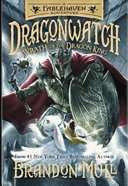
Seth and Kendra, newly appointed caretakers of Wyrmroost, soon find themselves in a fight for their lives when the dragons, led by Celebrant, rebel.

It is eight years after the tours from offworld have stopped. High Chancellor Querida has retired, leaving Wizard Corkoran in charge of the Wizards' University. Although Wizard Corkoran's obsession is to be the first man on the moon, and most of his time is devoted to this project, he decides he will teach the new first years himself in hopes of currying the favor of the new students' families—for surely they must all come from wealth, important families—and obtaining money for the University (which it so desperately needs). But Wizard Corkoran is dismayed to discover that one of those students—indeed, one he had such high hopes for, Wizard Derk's own daughter Elda—is a hugh golden griffin, and that none of the others has any money at all. Wizard Corkoran's money-making scheme backfires, and when Elda and her new friends start working magic on their own, the schemes go wronger still. And when, at length, Elda ropes in her brothers Kit and Blade to send Corkoran to the moon . . . well . . . life at the Wizards' University spins magically and magnificently out of control. This breathtakingly brilliant sequel to Dark Lord of Derkholm is all one would expect from this master of genre.

The instant New York Times bestseller from “queen of the geeks” Felicia Day, You’re Never Weird on the Internet (Almost) is a “relentlessly funny and surprisingly inspirational” (Forbes.com) memoir about her unusual upbringing, her rise to internet stardom, and embracing her weirdness to find her place in the world. When Felicia Day was a girl, all she wanted was to connect with other kids (desperately). Growing up in the Deep South, where she was “home-schooled for hippie reasons,” she looked online to find her tribe. The Internet was in its infancy and she became an early adopter at every stage of its growth—finding joy and unlikely friendships in the emerging digital world. Her relative isolation meant that she could pursue passions like gaming, calculus, and 1930’s detective novels without shame. Because she had no idea how “uncool” she really was. But if it hadn’t been for her strange background—the awkwardness continued when she started college at sixteen, with Mom driving her to campus every day—she might never have had the naïve confidence to forge her own path. Like when she graduated as valedictorian with a math degree and then headed to Hollywood to pursue a career in acting despite having zero contacts. Or when she tired of being typecast as the crazy cat-lady secretary and decided to create her own web series before people in show business understood that online video could be more than just cats chasing laser pointers. Felicia’s rags-to-riches rise to Internet fame launched her career as one of the most influential creators in new media. Ever candid, she opens up about the rough patches along the way, recounting battles with writer’s block, a full-blown gaming addiction, severe anxiety, and depression—and how she reinvented herself when overachieving became overwhelming. Showcasing Felicia’s “engaging and often hilarious voice” (USA TODAY), You’re Never Weird on the Internet (Almost) is proof that everyone should celebrate what makes them different and be brave enough to share it with the world, because anything is possible now—even for a digital misfit.
